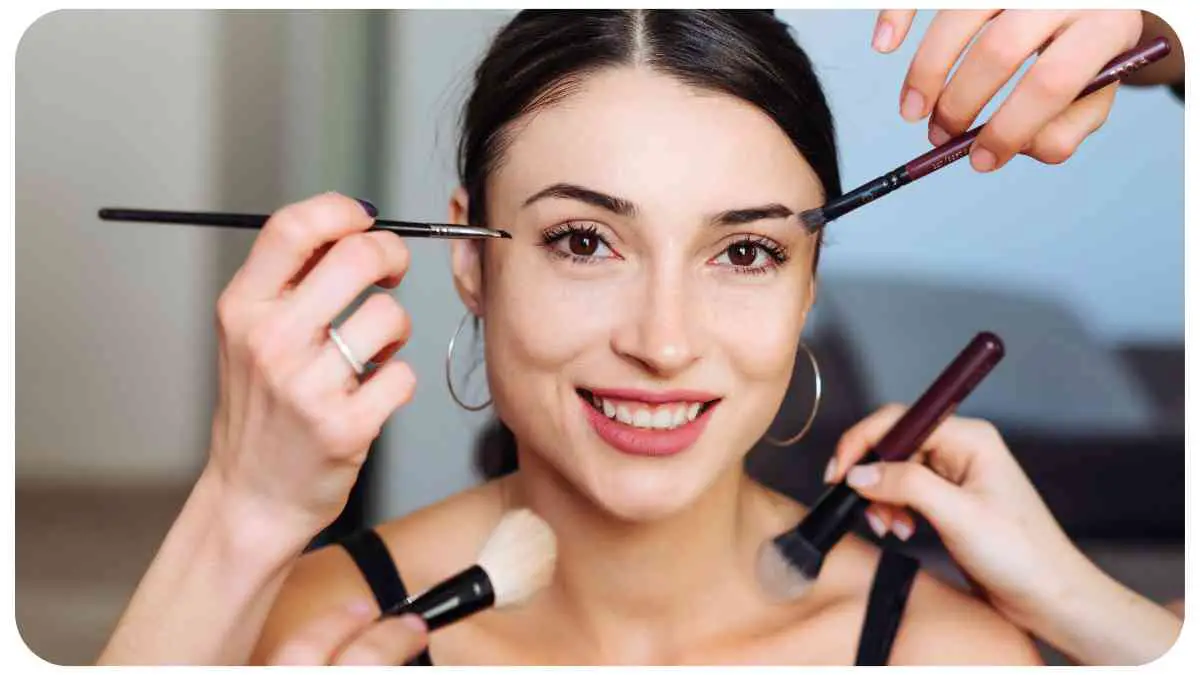Welcome to our guide on understanding vegan makeup and deciphering labels. With the increasing popularity of veganism and a greater focus on cruelty-free and ethical products, it’s essential to know what goes into your makeup.
In this article, we will explore what vegan makeup is, how to decode makeup labels, provide recommendations for vegan makeup brands and products, offer tips for identifying vegan cosmetics, and debunk common misconceptions. Let’s dive in!
| Takeaway |
|---|
| Understanding vegan makeup is essential for those concerned about animal welfare and ethical choices. |
| Vegan makeup does not contain any animal-derived ingredients and is often cruelty-free. |
| Checking certification labels, researching brands and ingredients, and consulting online resources can help identify vegan products. |
| Transitioning to vegan makeup can be a gradual process, replacing non-vegan products one at a time. |
| Supporting ethical brands contributes to the growth of the vegan makeup industry and promotes sustainable beauty practices. |
| Vegan makeup can be just as effective, affordable, and suitable for everyone, regardless of dietary choices. |
| Common myths surrounding vegan makeup, such as it being less effective or more expensive, are debunked. |
| Additional reading resources provide further guidance on vegan makeup labeling, ingredient lists, and identification of vegan products. |
2. Understanding Vegan Makeup
What is Vegan Makeup?
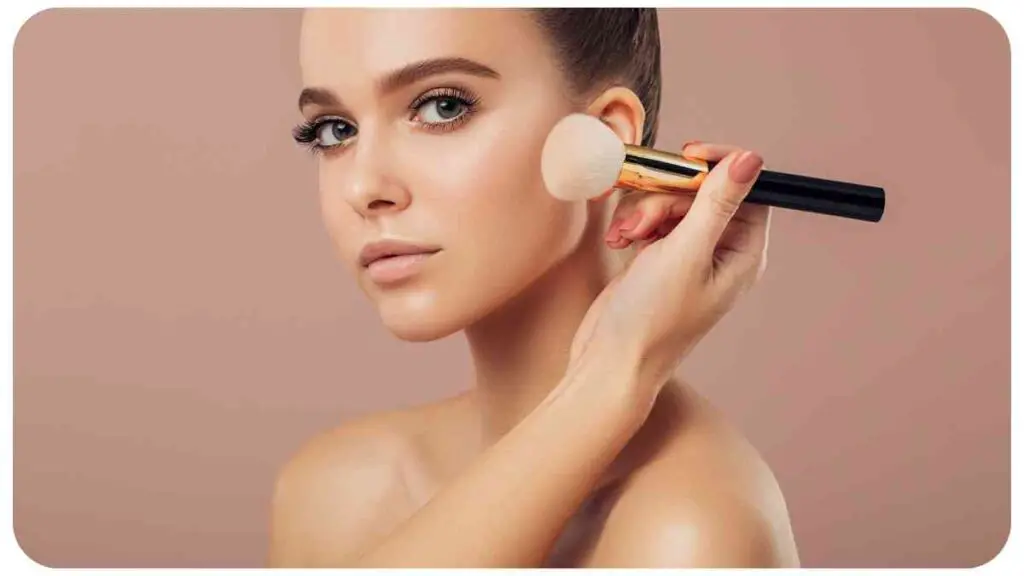
Vegan makeup refers to cosmetic products that do not contain any animal-derived ingredients. This means that no animal by-products, such as beeswax, carmine, or lanolin, are used during the manufacturing process. Vegan makeup also avoids ingredients that are obtained through animal cruelty.
The Benefits of Using Vegan Makeup
Apart from being cruelty-free, vegan makeup offers numerous benefits. First and foremost, it reduces the demand for animal-derived ingredients, contributing to the protection of animals and the environment. Additionally, vegan makeup often contains natural and plant-based ingredients that are gentle on the skin, making it suitable for those with sensitive skin or allergies.
If you’re concerned about animal testing, check out our guide on the best cruelty-free beauty brands available. Choose ethical products that align with your values.
The Rise of Vegan Makeup Brands
The demand for cruelty-free and vegan products has led to the emergence of several vegan makeup brands.
These brands prioritize creating high-quality cosmetics without compromising on ethics. Many of them also focus on sustainability and eco-friendly packaging, making them an excellent choice for conscious consumers.
3. Deciphering Makeup Labels
Understanding makeup labels is crucial for identifying vegan-friendly products. Here are a few key points to consider when deciphering cosmetic labels:
Cruelty-Free vs. Vegan
While both terms are often used together, they have distinct meanings. Cruelty-free indicates that a product has not been tested on animals, but it may still contain animal-derived ingredients.
On the other hand, vegan products do not contain any animal-derived ingredients, but they may not necessarily be cruelty-free. To ensure both characteristics are present, look for products that are both vegan and cruelty-free.
Transitioning to vegan skincare can be overwhelming. Our comprehensive guide provides all the information necessary to make an informed choice for your beauty routine.
Ingredients to Avoid
When searching for vegan makeup, it’s essential to know which ingredients to avoid. Some common non-vegan ingredients include:
- Beeswax
- Carmine (a red pigment derived from crushed insects)
- Lanolin (a substance extracted from sheep’s wool)
- Collagen (derived from animal tissue)
- Squalene (often obtained from shark liver oil)
Checking the ingredient list thoroughly and conducting research can help you identify non-vegan components.
4. Vegan Makeup Brands and Products
To make your search for vegan makeup easier, we’ve compiled a list of popular vegan makeup products across different categories:
Foundation
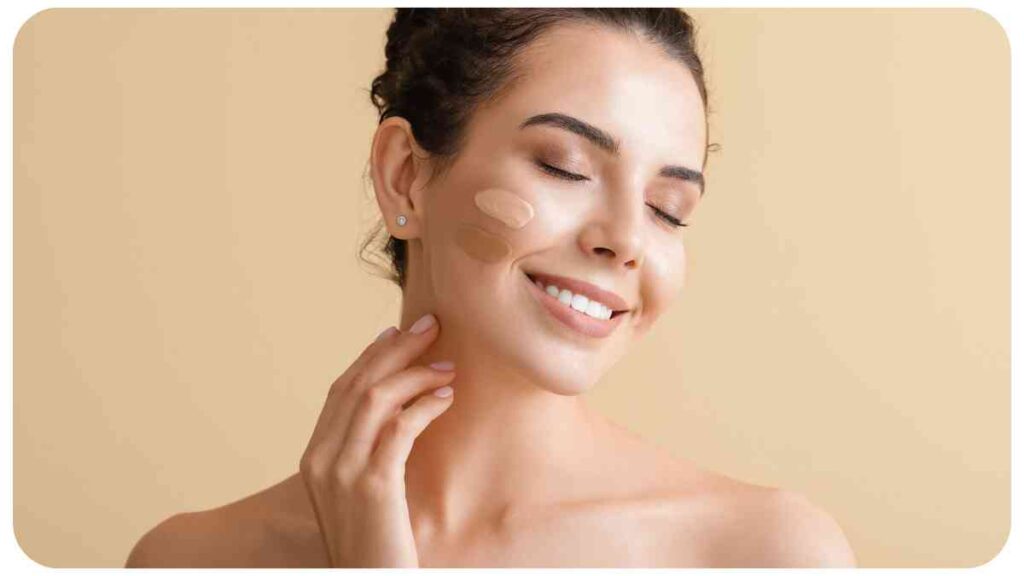
| Brand | Product | Shade Range | Coverage |
| Tarte | Amazonian Clay Foundation | Wide range | Medium to full |
| Cover FX | Natural Finish Foundation | Extensive | Buildable to full |
| Kat Von D | Lock-It Foundation | Diverse | Full |
Concealer
| Brand | Product | Shade Range | Coverage |
| Urban Decay | Stay Naked Concealer | Diverse | Medium to full |
| Too Faced | Born This Way Super Coverage Multi-Use Concealer | Broad | Full |
| e.l.f. | 16HR Camo Concealer | Extensive | Full |
Mascara
| Brand | Product | Wand Type | Effect |
| Hourglass | Unlocked Mascara | Hourglass-shaped | Lengthening, volumizing |
| Pacifica | Stellar Gaze Length & Strength Mascara | Classic | Lengthening |
| Thrive | Liquid Lash Extensions Mascara | Unique brush | Lash-lengthening, volumizing |
Lipstick
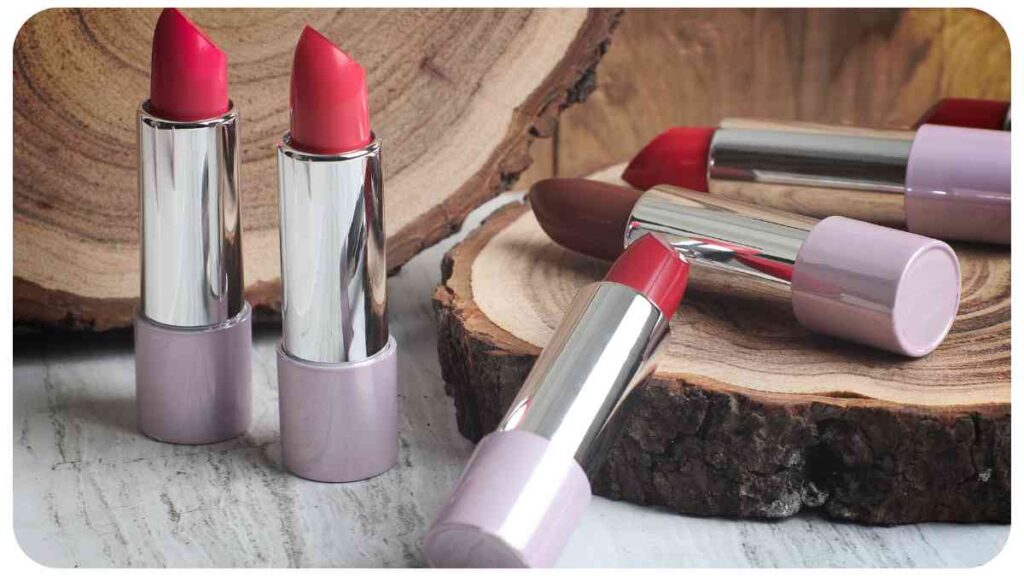
| Brand | Product | Finish | Color Range |
| Axiology | Natural Lipstick | Creamy | Various |
| Lime Crime | Velvetines Liquid Matte Lipstick | Matte | Extensive |
| Anastasia Beverly Hills | Matte Lipstick | Matte | Wide range |
Eyeshadow Palette
| Brand | Product | Palette Options | Shade Range |
| Juvia’s Place | The Nubian Eyeshadow Palette | Multiple | Wide range |
| Urban Decay | Naked Reloaded Eyeshadow Palette | Neutral tones | Diverse |
| Huda Beauty | Desert Dusk Eyeshadow Palette | Warm tones | Extensive |
5. Tips for Identifying Vegan Makeup
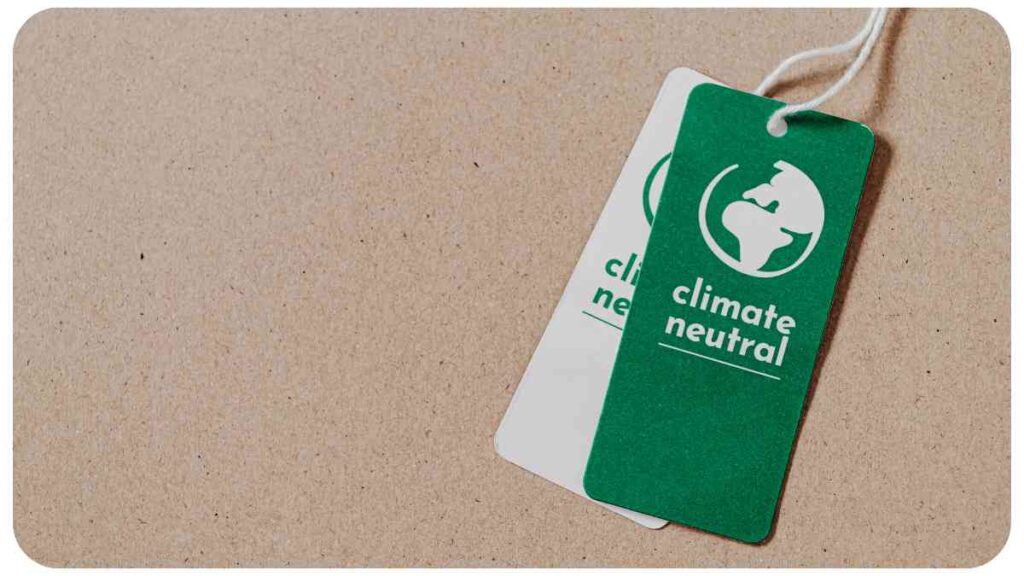
When searching for vegan makeup, consider the following tips to ensure you make informed choices:
Checking Certification Labels
Look for certification labels on packaging that indicate the product is vegan. Some well-known certification programs include:
- Leaping Bunny: This logo ensures the product is cruelty-free and does not test on animals.
- Vegan Society: The Vegan Society logo denotes that the product is free from animal-derived ingredients.
- PETA: The PETA logo signifies that the product is cruelty-free and does not support animal testing.
Are you curious about the contents of your wine? Read our guide on vegan wine to understand the basics and make cruelty-free choices when raising a glass.
Researching Brands and Ingredients
Before purchasing a product, research the brand’s commitment to veganism and animal welfare. Visit their website, read reviews, and explore their ingredient lists to ensure they align with your values. Keep an eye out for brands that prioritize transparency and sustainability.
Consulting Online Resources
Utilize online resources dedicated to vegan beauty and makeup to find comprehensive lists of vegan brands, product recommendations, and ingredient guides. Websites like Logical Harmony, Cruelty-Free Kitty, and PETA’s Beauty Without Bunnies database are excellent sources of information.
Incorporating Vegan Makeup into Your Routine
Transitioning to vegan makeup can be a gradual process. Start by replacing one product at a time, such as switching your foundation or mascara. As you finish non-vegan products, replace them with vegan alternatives. Building a vegan makeup collection over time will help streamline your routine without overwhelming your budget.
Supporting Ethical Brands
By supporting ethical brands, you contribute to the growth and development of the vegan makeup industry. Look for brands that are transparent, eco-conscious, and actively involved in promoting animal welfare.
6. Vegan Makeup Myths Debunked
As with any topic, there are myths and misconceptions surrounding vegan makeup. Let’s debunk a few common ones:
- Myth: Vegan makeup is less effective than traditional makeup. Truth: Vegan makeup can be just as effective, if not more so, as traditional makeup. With advancements in technology and an increasing focus on natural ingredients, vegan makeup offers high-quality performance without compromising on ethics.
- Myth: Vegan makeup is more expensive. Truth: While some vegan makeup brands may have higher price points, there are plenty of affordable options available. Additionally, investing in cruelty-free and eco-friendly products can contribute to a more sustainable beauty routine in the long run.
- Myth: All vegan makeup is organic or natural. Truth: Vegan makeup and organic/natural makeup are not synonymous. While some vegan products may also be organic or natural, it’s important to read labels and ingredient lists to understand a product’s formulation.
- Myth: Vegan makeup is only for vegans. Truth: Vegan makeup is for everyone! Whether you’re vegan, vegetarian, or simply want to make more ethical choices, vegan cosmetics offer a range of options for anyone interested in cruelty-free beauty.
Baking vegan? No problem! Our comprehensive guide to vegan baking substitutes is here to help you create delicious treats without animal products.
7. Conclusion
In conclusion, understanding whether your makeup is vegan is crucial for those who prioritize animal welfare, sustainability, and ethical choices. By opting for vegan makeup, you can enjoy high-quality cosmetics without compromising your values.
In this guide, we explored what vegan makeup entails and its benefits. We deciphered makeup labels, highlighting the differences between cruelty-free and vegan products and identifying ingredients to avoid. We provided recommendations for vegan makeup brands and products in various categories, such as foundation, concealer, mascara, lipstick, and eyeshadow palettes.
Furthermore, we shared tips for identifying vegan makeup, including checking certification labels, researching brands and ingredients, and consulting online resources. We encouraged a gradual transition to vegan makeup and supporting ethical brands.
Lastly, we debunked common myths surrounding vegan makeup, emphasizing that it can be equally effective, affordable, and suitable for everyone, regardless of their dietary choices.
By being informed consumers, we can make conscious choices that align with our values and contribute to a more compassionate and sustainable beauty industry. So, next time you reach for your makeup bag, remember to ask, “Is it vegan?”
With this guide, we hope you feel empowered to navigate the world of vegan makeup and make choices that align with your values and preferences. Happy exploring and embracing the world of cruelty-free beauty!
Explore the supplement options for vegans with our insightful article on vegans needing supplements. Discover how to maintain a balanced diet and optimize your health on a plant-based lifestyle
Further Reading
Here are some additional resources you can explore to deepen your understanding of vegan makeup and labeling:
Vegan and Cruelty-Free Cosmetics: Understanding Labeling Clarifications: This article provides insights into the labeling of vegan and cruelty-free cosmetics, helping you navigate the terminology and understand the industry’s standards.
Is It Vegan? A Guide to Ingredient Lists: This resource offers a comprehensive guide to reading ingredient lists and understanding whether specific products are truly vegan. It includes a breakdown of common non-vegan ingredients to watch out for.
How to Identify Vegan Products: Read Vegan Labels: This article provides valuable tips and guidance on deciphering vegan labels and understanding product certifications. It also highlights the importance of conducting thorough research and supporting ethical brands.
FAQs
Here are some frequently asked questions about vegan makeup:
What does it mean for makeup to be vegan?
Vegan makeup refers to cosmetic products that are free from any animal-derived ingredients and are not tested on animals. They are created with plant-based and synthetic ingredients, ensuring the products are cruelty-free.
Are all cruelty-free products vegan?
No, not all cruelty-free products are vegan. Cruelty-free refers to products that are not tested on animals, but they may still contain animal-derived ingredients. Vegan products go a step further by ensuring no animal by-products are used in their formulation.
How can I know if a product is vegan?
To determine if a product is vegan, check for clear labeling or certification logos. Look for words like “vegan,” “animal-free,” or the presence of recognized vegan certification symbols on the product packaging. You can also consult online resources and ingredient lists for further verification.
What are some common non-vegan ingredients in makeup?
Some common non-vegan ingredients to watch out for include beeswax, carmine (derived from crushed insects), lanolin (extracted from sheep’s wool), collagen (derived from animal tissue), and squalene (often obtained from shark liver oil).
Can I find vegan makeup options at affordable prices?
Yes, there are affordable vegan makeup options available in the market. The growing demand for vegan cosmetics has led to increased accessibility and affordability. Many brands offer a wide range of products at various price points to suit different budgets.
Remember to always check labels, do thorough research, and support ethical brands to ensure you are purchasing genuinely vegan makeup products.

Hi! My name is Hellen James, and I’m a vegan lifestyle enthusiast. I’ve been living the vegan lifestyle for over 10 years now, and it’s been one of the best decisions I’ve ever made. The food is amazing, the community is incredible, and there’s no way I could go back after experiencing all this firsthand.

